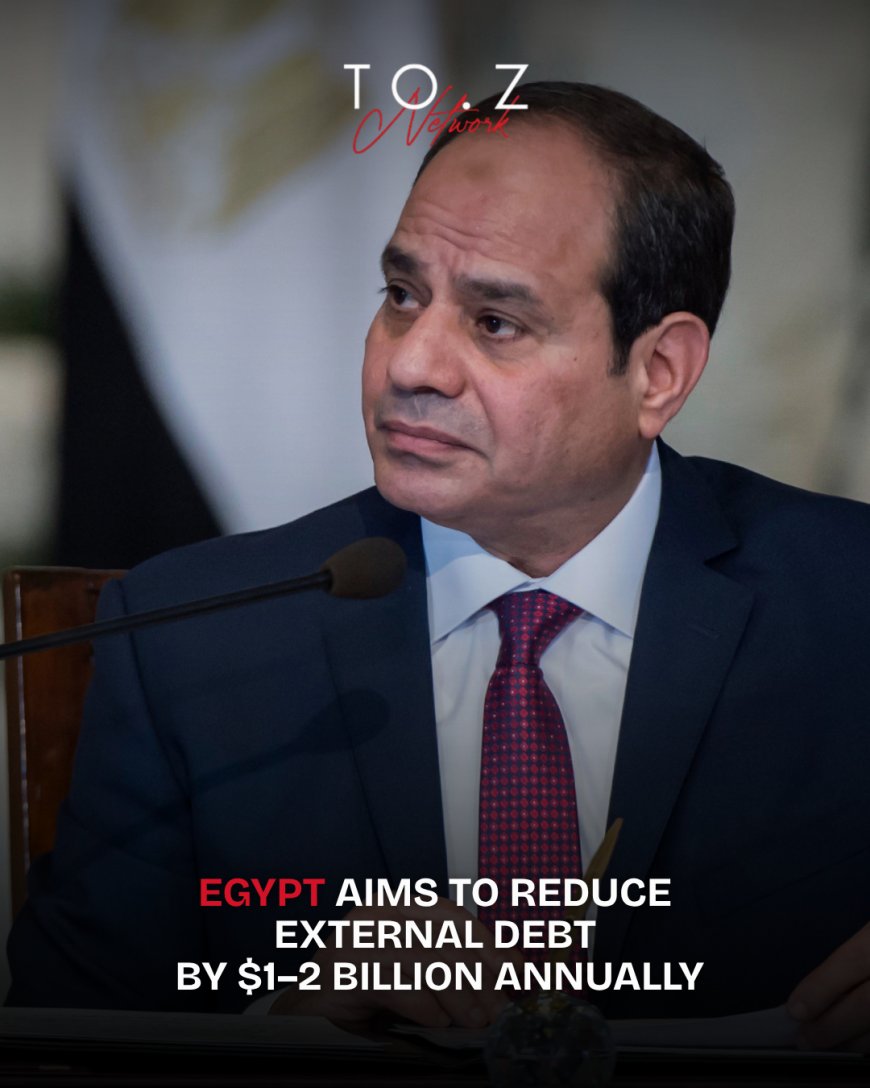Egypt Targets Annual Cut of $1–2 Billion in External Debt
Egypt announces a target to reduce external debt by $1–2B annually in FY 2024–25, alongside strong tax revenue growth, IMF collaboration, and social protection commitments. The plan reflects growing taxpayer engagement, improved fiscal performance, and government efforts to enhance economic resilience amid global challenges.

As part of a broader effort to strengthen fiscal discipline and economic resilience, Egypt has announced plans to reduce its external debt by $1–2 billion annually for the 2024–2025 fiscal year, according to a statement from the Egyptian Presidency.
High-Level Meeting on Fiscal Strategy
The announcement followed a high-level meeting held between President Abdel Fattah Al-Sisi, Prime Minister Mostafa Madbouly, and Finance Minister Ahmed Kouchouk. The meeting focused on reviewing Egypt's fiscal and economic performance, current reform initiatives, and ongoing negotiations with international financial institutions.
Strong Tax Revenue Growth and Public Engagement
During the meeting, Finance Minister Kouchouk presented key outcomes of a recent tax facilitation initiative. The initiative resulted in the declaration of EGP 54.76 billion in additional taxes, driven by the submission of over 450,000 new or revised tax returns.
Additionally, 110,000 tax dispute settlements were voluntarily submitted as of June 19, 2025—an indication of rising public trust in the tax system. The finance ministry also reported that 52,901 small business taxpayers have applied for incentives and tax breaks available for projects with an annual turnover below EGP 20 million.
Positive Fiscal Indicators
A review of the fiscal period from July 2024 to May 2025 revealed a large primary surplus and a decline in the overall budget deficit. Tax revenues increased by 36%, attributed to improved economic activity, a wider tax base, and the absence of new tax burdens. The government emphasized the importance of spending rationalization in maintaining this fiscal balance.
Continued IMF Collaboration
The meeting also covered Egypt’s progress under its ongoing economic reform program with the International Monetary Fund (IMF). The finance minister reported on the ongoing negotiations surrounding the fifth IMF program review and the related funding tranche.
Addressing Global and Regional Challenges
President Al-Sisi highlighted the impact of global economic volatility and regional geopolitical events, particularly the Iran-Israel conflict, on shipping costs, market uncertainty, and commodity prices. In response, he directed the government to maintain necessary financial and commodity reserves.
Presidential Directives for Sustainable Growth
President Al-Sisi urged the government to draw inspiration from successful international models to stabilize fiscal and tax policy. He stressed the importance of improving the business climate, broadening the tax base, and promoting investment. The president also reaffirmed the government's commitment to support social protection, human development, and employment generation, while maintaining fiscal discipline.









